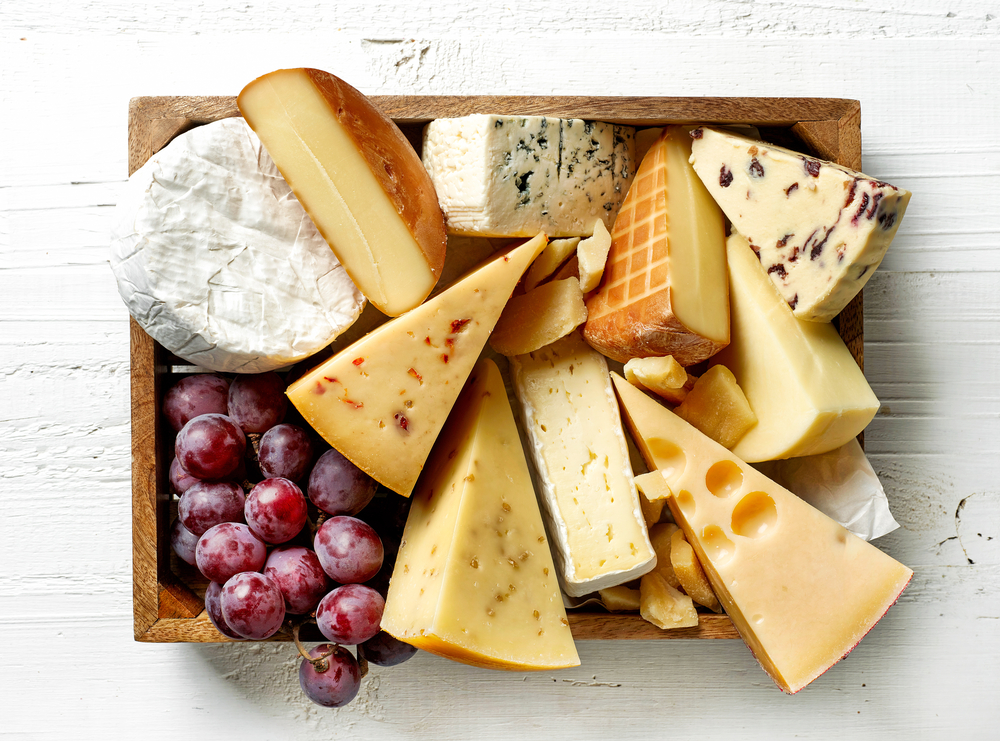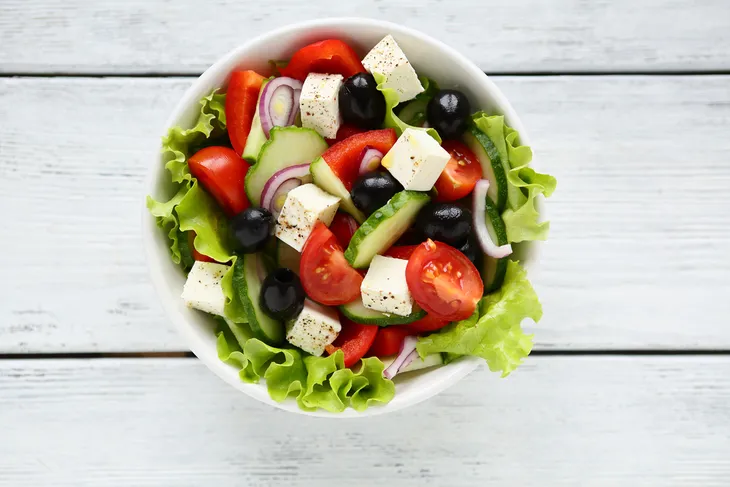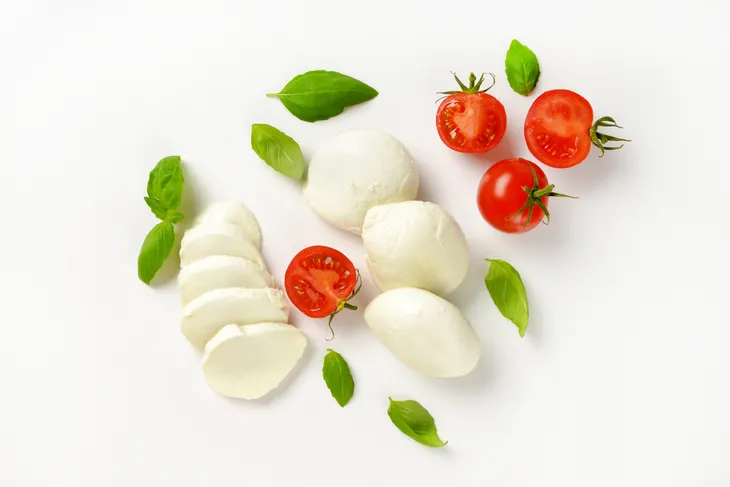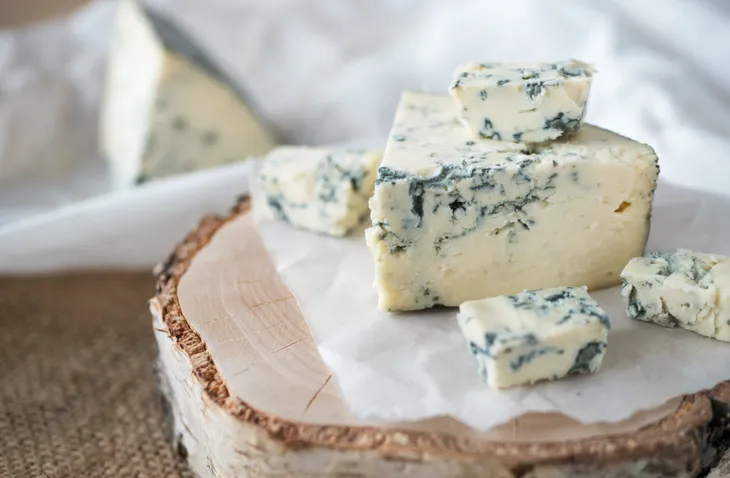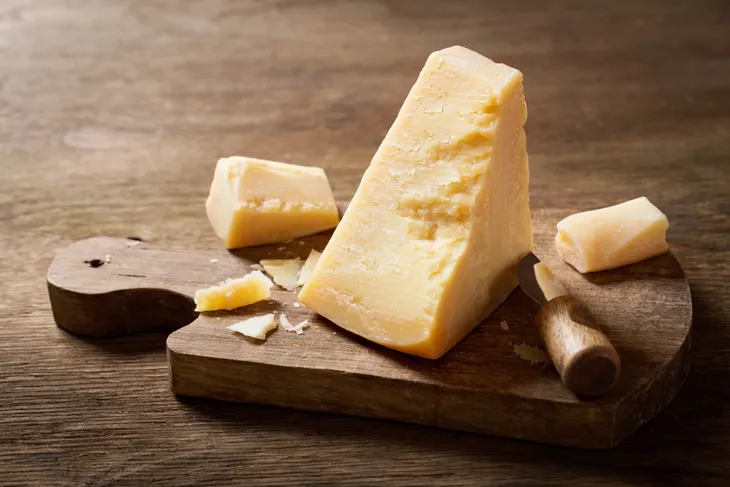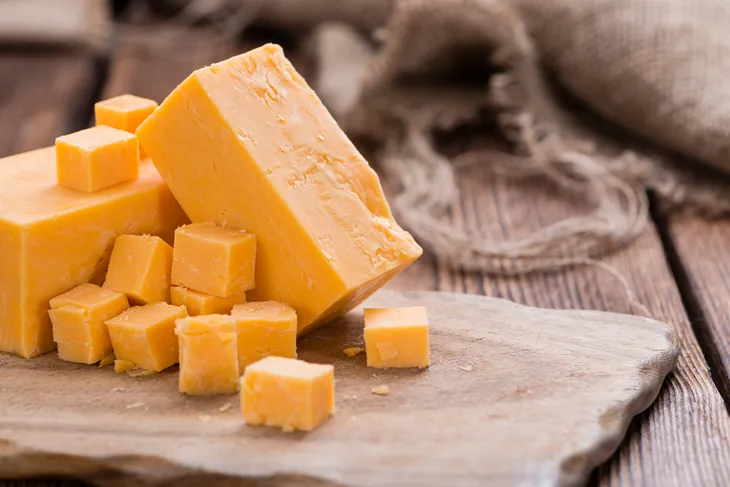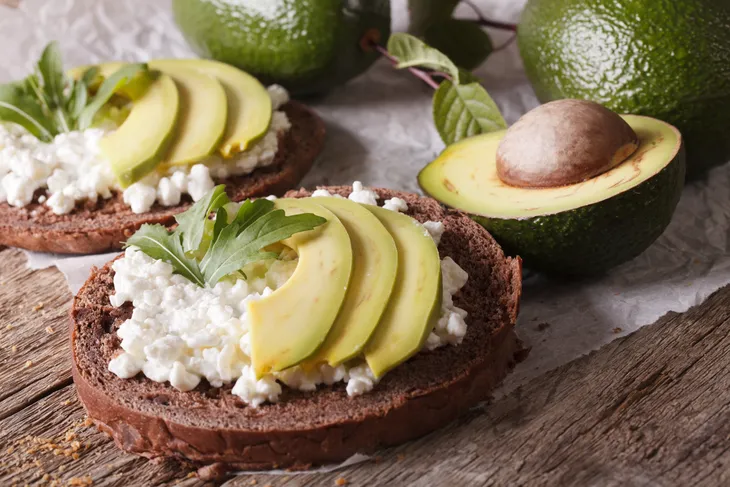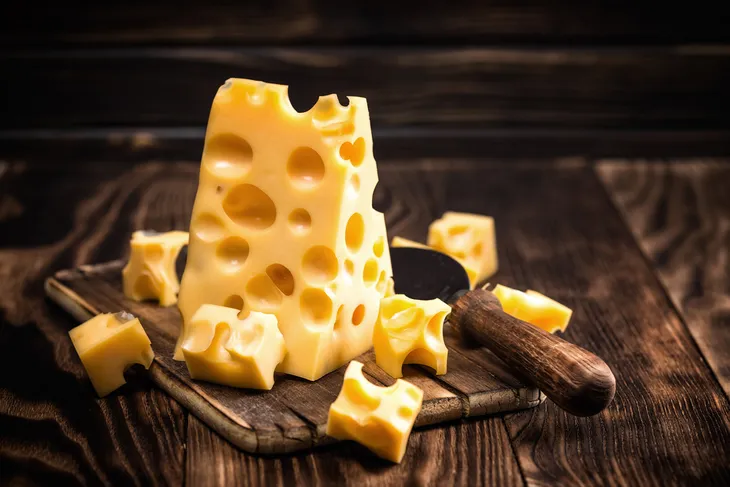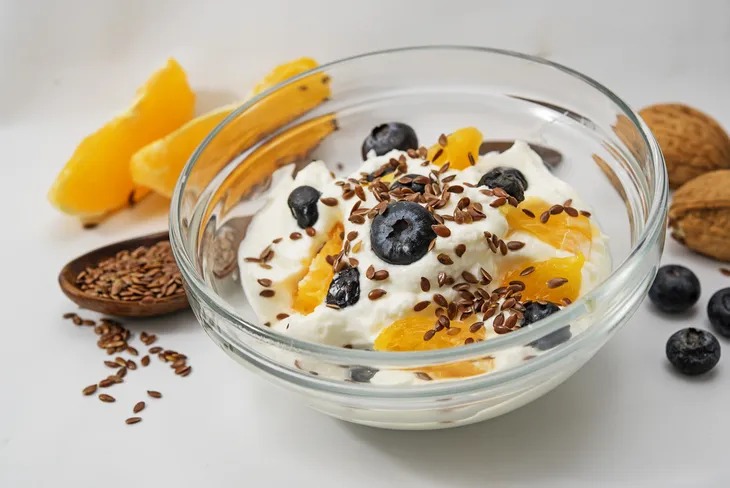If you regularly eat cheese, you know how delicious it can be and how it can perfectly complement many different dishes. That said, cheese often gets a bad reputation because it can be high in fat. Fortunately, not all cheese is bad for you and it can even be good for your health. The secret is to stay away from processed cheese products because these may contain added sugar, oils, and even dyes.
Real, good quality types of cheese can be a great source of calcium and protein. Some cheeses can even promote gut health and bone health and some may even be able to help lower your risk of heart disease. So how do you know which types of cheese are healthy? We did the research for you and have found the 10 healthiest types of cheese you can enjoy!
Goat Cheese
Goat cheese is a delicious and healthy cheese. It may be a great option for those who have a sensitivity to cheese made from cow’s milk. Healthline explains, “Goat cheese is lower in lactose and contains proteins that may be more easily digested than those in cheeses from cow’s milk.”
Furthermore, a 1-ounce serving is only 75-calories and offers 5-grams of protein. Goat cheese is made from goat milk and is a soft type of cheese. It has a tangy flavor and is often enjoyed crumbled on top of a salad, pizza, eggs, and more!
Ricotta Cheese
Ricotta has a lovely light and creamy texture and a delicate flavor. This makes it a great cheese that can be used in both savory or sweet dishes. It has Italian origins and is often made from cow’s milk. But it can also be made from Italian water buffalo, sheep, or goat’s milk.
Ricotta cheese is considered one of the healthiest types of cheese because it contains a generous amount of protein (about 12-grams per half-cup-cup serving). The protein is also mostly whey which is a milk protein rich in essential amino acids. Whey is also known to help promote muscle growth, reduce high cholesterol, and may even help lower blood pressure.
Feta Cheese
Feta originates from Greece and is a soft, white cheese. It’s often made from goat or sheep’s milk. If the feta is made from sheep’s milk, it’ll often have a tangy sharp flavor, while feta made from goat’s milk often has a milder taste.
Feta is packaged in brine to preserve freshness. Because of this, feta can be very high in sodium. What makes feta one of the healthiest types of cheese, is that it’s usually lower in calories than most cheeses (about 80-calories per 1-ounce serving.
Mozzarella Cheese
Fresh mozzarella is a soft, white cheese with origins in Italy. It’s often made from cow’s milk or Italian water buffalo’s milk. But what makes mozzarella cheese a healthy cheese? For starters, it contains probiotics that may improve gut health and may boost your immense system.
Mozzarella cheese also contains less sodium and calories than most other cheeses. In fact, a 1-ounce serving contains just 85-calories and 175-milligrams of sodium. It also offers 6-grams of protein and contains calcium, about 14-percent of the reference daily intake (RDI).
Blue Cheese
Blue cheese is a soft cheese that is usually white with blue-ish grey veins and spots. It’s typically made from goat, cow, or sheep’s milk and is made with cultures of the mold Penicillium. This is what gives the cheese its unique smell and tangy flavor.
Blue cheese is one of the healthiest types of cheese as it contains more calcium than most other types of cheese. In fact, a 1-ounce serving contains 33-percent of the RDI. Calcium is an essential nutrient for bone health and getting enough calcium may help to reduce your risk of osteoporosis.
This cheese is great for sprinkling on top of a salad or fruit. It can also be a great topping for burgers and pizza!
Parmesan Cheese
Parmesan is made from raw, unpasteurized cow’s milk. It’s aged for a minimum of 12 months to rid the cheese of harmful bacteria as well as to develop its distinctive flavor. Along with its iconic texture and flavor, parmesan also boasts an impressive nutrient profile.
For starters, a 1-ounce serving contains 10-grams of protein and nearly 30-percent of your daily recommended intake of phosphorus. It’s also a good source of calcium, both of which can aid in bone health. Parmesan is also low in lactose because it’s aged for such a long period of time.
Grated parmesan is very versatile. It can be enjoyed on top of a salad or pizza but can also be enjoyed with fruits and nuts.
Cheddar Cheese
Cheddar cheese is one of the most popular types of cheese and is often a staple in most homes. This semi-hard cheese originates in England and is made from cow’s milk. Cheddar can be white, off-white, or yellow and can have a flavor ranging from mild to very sharp.
Cheddar Cheese is a healthy option because it’s a great source of protein and calcium. A 1-ounce serving contains 7-grams of protein and 20% of the RDI for calcium. This type of cheese is also a great source of vitamin K which is an essential nutrient for bone and heart health.
Cottage Cheese
Cottage cheese is known for its soft and creamy texture and salty flavor. It’s one of the healthiest types of cheese because it offers more protein than some other types of cheese. In fact, 1-cup of cottage cheese contains about 28-grams of protein!
Cottage cheese is also a great source of vitamin B12. Just 1-cup of cottage cheese offers 59-percent of your daily recommended intake of B12. Cottage cheese can be added to many different dishes including scrambled eggs, spread on toast, used in dips and so much more.
Swiss Cheese
Swiss cheese originates in Switzerland and is usually made from cow’s milk. It has a mild, nutty flavor and a firm but pliable texture. Did you know the iconic holes found in Swiss Cheese are made from gas? During the fermentation process, the bacteria in the cheese releases gas which creates the holes.
Swiss Cheese is a healthy option because it’s lower in fat and sodium compared to most other cheeses. This makes it a great cheese for people who need to watch their salt and/or fat intake. A 1-ounce serving also offers 9-grams of protein and a generous amount of calcium — about 25-percent of the RDI.
Quark Cheese
Quark is a soft, creamy cheese with origins in Germany. It’s widely popular in Europe and is relatively new in the United States. Quark cheese has a similar creamy texture to Greek yogurt but has a milder, less tart flavor. This type of cheese can be enjoyed by the spoonful just like yogurt, or it can be used as a spread.
Quark is a healthy type of cheese because it’s a good source of probiotics, offers a generous amount of protein (about 13-grams per half-cup serving), and is a good source of calcium. It’s worth noting, quark contains more carbs than some other types of cheese. This is important to know for low-carb or keto dieters.
